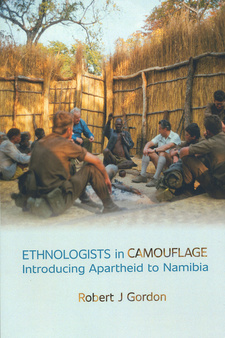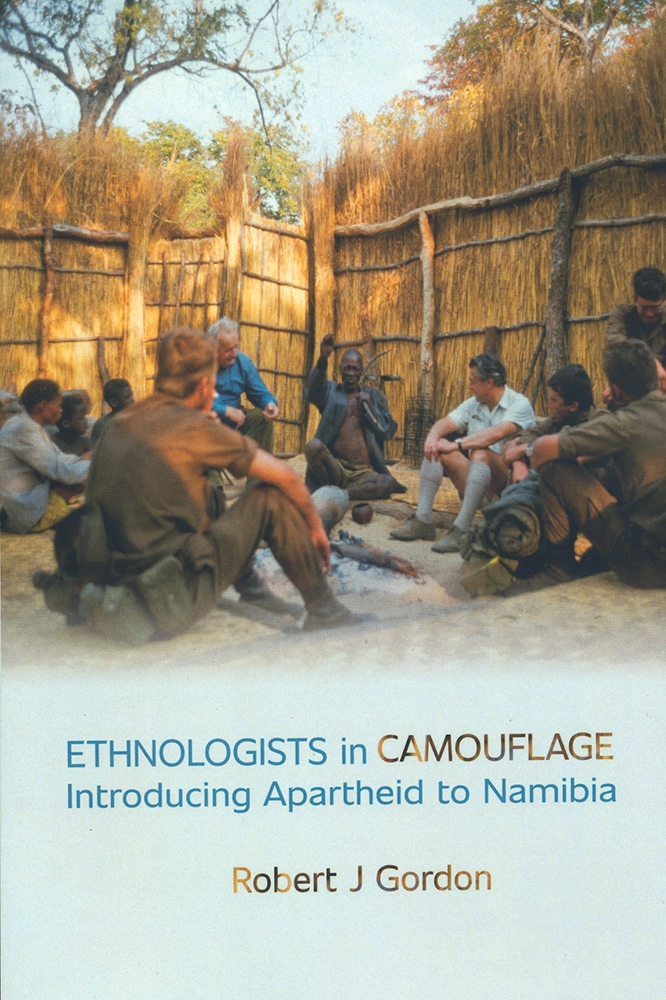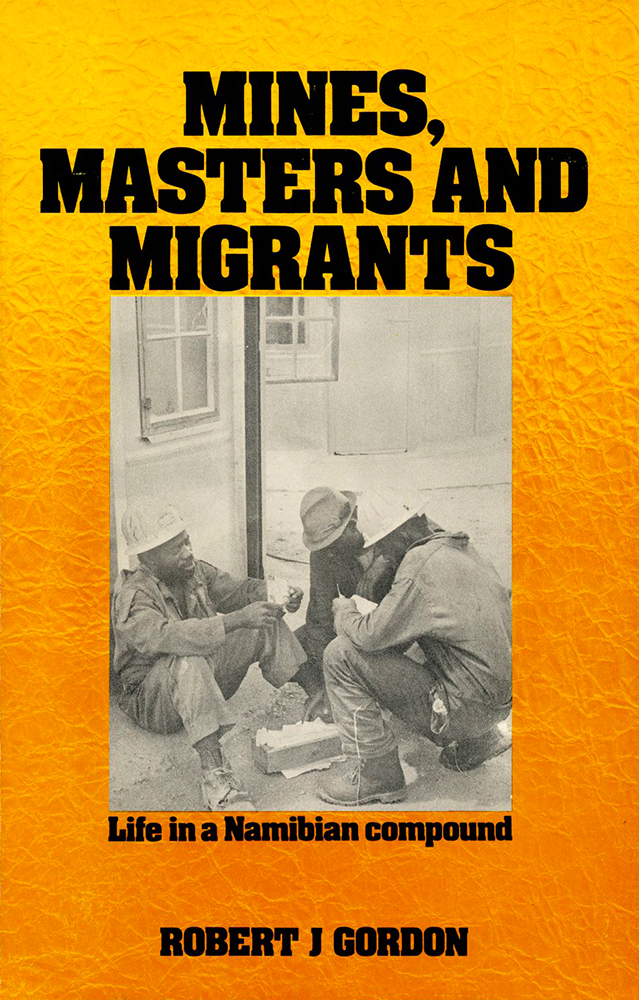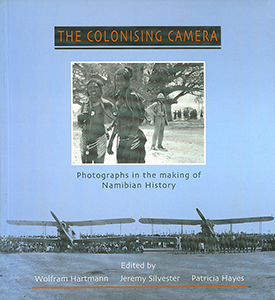Ethnologists in camouflage. Introducing Apartheid to Namibia, by Rob Gordon

Ethnologists in camouflage. Introducing Apartheid to Namibia, by Rob Gordon. UNAM Press. Windhoek, Namibia 2022. ISBN 9789991642765 / ISBN 978-9-99-164276-5
Ethnologists in camouflage. Introducing Apartheid to Namibia by Rob Gordon is highly engaging, confrontational of white conservatism and racism and justly devastating of expertise gone wrong.
Preface
In Ethnologists in camouflage. Introducing Apartheid to Namibia, Robert Gordon addresses critical aspects of apartheid administration in the then South West Africa by examining its roots and the role of ethnologists who promoted apartheid ideology and propaganda as constructed through volkekun&ige knowledge. He scrutinises its ardent proponents such as Professor Johannes Petrus van Schalkwyk Bruwer and his followers, and uses various disciplinary lenses such as history, anthropology, psychology and sociology as he straddles an undoubtedly rich archive. He draws on published studies as well as new research so that the book also speaks to the contemporary. Of particular interest are Gordon's perspectives on institutions such as the SWA Scientific Society and formations such as Ezuva, Etango and Namwi through which ethnologists promoted tribal and ethnic identities. Gordon's work brings out new evidence and information about crucial questions that have been left hanging due to limited access to archives for many scholars. The involvement of state-controlled radio broadcasting and educational programmes is revealed here in detail for the first time. Professor Bruwer and other ethnologists through their close proximity to the South African Defence Force promoted an apartheid-inspired view of the peoples of Namibia which Bruwer was able to propagate in his role as an expert witness at the International Court of Justice, where he became the unquestioned authority on the population of the territory. Bruwer was also an influential figure of the Odendaal Commission through which the apartheid administration was introduced and solidified in South West Africa. Gordon's research exposes Bruwer's activities and networks in various organisations and state-sponsored operations. Such findings illuminate Bruwer's towering figure in affairs of the state and how his influence shaped the imagined South West African volkekunde discourse and social narrative of the time. Gordon casts new light on a range of other influential figures, some prominent and well known, such as Colonel Jan Breytenbach, and others whose role was of a more shadowy nature, such as the educational psychologist Louis Pasques who guided the establishment of the government-sponsored youth organisations in north and northeastern South West Africa, aided by ethnologists such as Jan Bradley. These youth movements involved military personnel from the intelligence section who used Christianity and Bible studies coupled with oathtaking to promote obedience and loyalty to the Administration and to encourage the youth to shun Communism. Gordon also draws attention to the etiquette manual that urged South African soldiers to avoid native women, so highlighting the failure of counter-mobilisation processes to understand the agency of women who played a crucial role during the war as supporters of combatants. There is a great depth of archival information in this book which counters the denial from various ethnologists about their role in programmes sponsored by the "Hearts and Minds" campaign of the South African Defence Force. In the end, it is not clear how far ethnological interventions really contributed to the operations of the South African army. Gordon notes that military leaders were not generally convinced of the value of the volkekunde approach which lacked rigour due to its poor critical content. Gordon shows that the "Hearts and Minds" campaign was simply that: a social reform project, and that it failed entirely to achieve the aim of countering the narrative of the anti-colonial liberation movement.
Dr Michael Akuupa
Director of the Labour Resource and Research Institute, Namibia
This is an excerpt from Ethnologists in camouflage. Introducing Apartheid to Namibia, by Rob Gordon.
Title: Ethnologists in camouflage
Subtitle: Introducing Apartheid to Namibia
Author: Rob Gordon
Publisher: UNAM Press
Windhoek, Namibia 2022
ISBN 9789991642765 / ISBN 978-9-99-164276-5
Softcover, 15 x 21 cm, 186 pages
Gordon, Robert J. im Namibiana-Buchangebot
Ethnologists in camouflage. Introducing Apartheid to Namibia
Ethnologists in camouflage: Introducing Apartheid to South West Africa/Namibia from the 1950s.
Mines, masters and migrants. Life in a Namibian compound
The study Mines, masters and migrants: Life in a Namibian compound has made black mineworkers situation in the 1970s more visible.
The Colonising Camera
The Colonising Camera is a pioneering work on photography and the historiographs of Namibia with excellently reproduced photographs.



